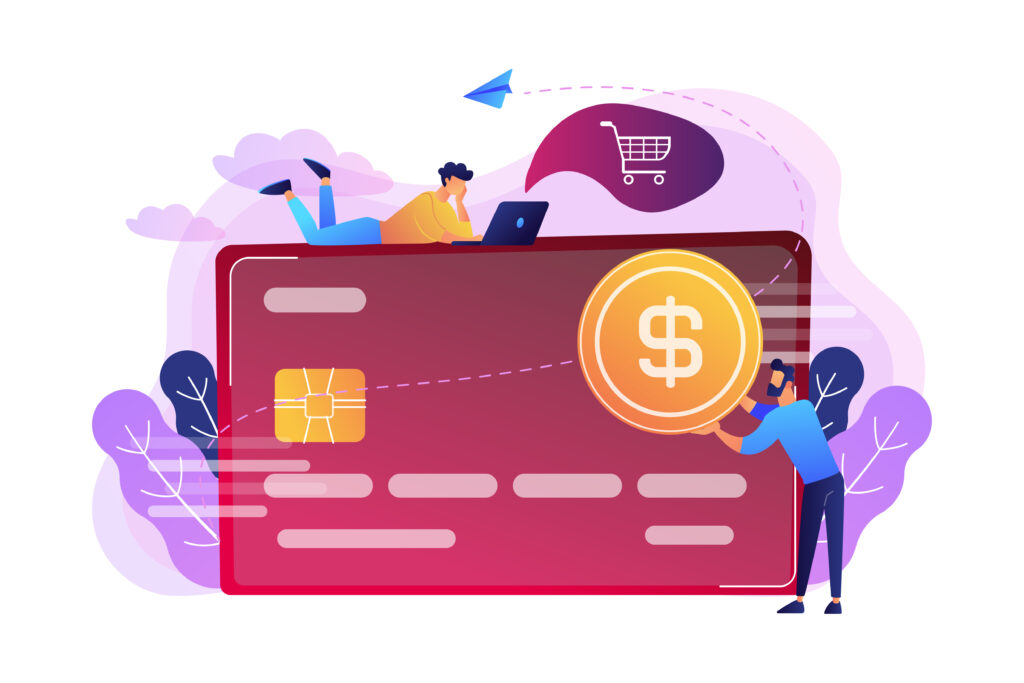
What is a Credit Card?
A credit card is a plastic or metal card, issued by a financial institution, which allows cardholders to borrow funds to pay for goods and services. Think of it as a short-term loan: you use the card to buy something now, and then pay it back later. Unlike cash, where you pay upfront, a credit card lets you settle your debt periodically. If you don’t pay the full amount you owe each month, the bank or financial institution will charge you interest on the remaining balance.
How Credit Cards Impact Overall Financial Health
Credit cards are powerful tools. Used wisely, they can help you manage cash flow, earn rewards, and even boost your credit score. That’s right – every time you pay off your credit card balance on time, it positively impacts your credit history, making it easier for you to get loans, mortgages, or even rent an apartment.
However, if mismanaged, credit cards can lead to debt, high interest charges, and a dip in your credit score. It’s like a double-edged sword: beneficial when used responsibly, but potentially harmful if not.
Understanding the Basics Of Credit Cards
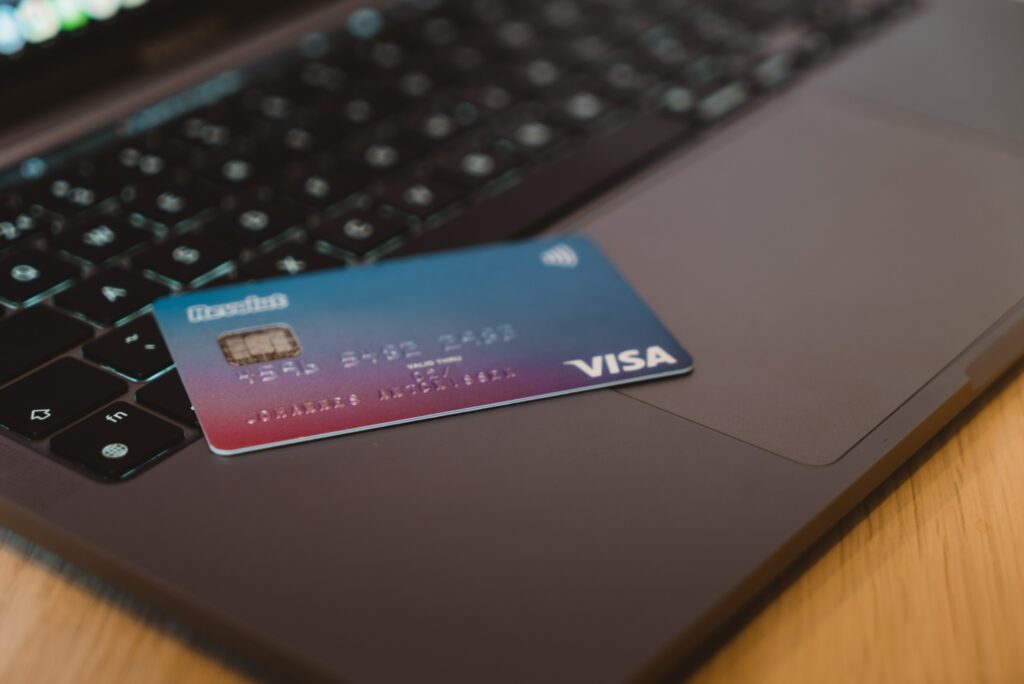
How Do Credit Cards Work?
Essentially, a credit card is a promise to the bank. When you use it, you’re telling the store that your bank (or credit card provider) will pay them on your behalf, and you promise to pay the bank back later. Here’s how it works:
- Swipe or Insert: When you make a purchase, you either swipe the magnetic stripe, insert the chip, or tap the card if it’s contactless.
- Authorization: The merchant’s payment terminal asks your bank if your card is valid and has enough credit. This happens in seconds.
- Transaction: If approved, the purchase amount is reserved from your credit limit, and the merchant gets a confirmation.
- Settlement: At the end of the day, transactions are processed, and the merchant receives their money.
- Billing: Your bank sends you a statement, usually monthly, detailing your transactions.
- Payment: You pay the bank before the due date. If you pay the full balance, you usually avoid interest. If not, interest is charged on the remaining amount.
The Role of Credit Cards in Modern Finance
Credit cards are an everyday tool in life today and it’s because:
- Convenience: Gone are the days of carrying large sums of cash. With a credit card, purchasing anything, anywhere, anytime becomes easy. Plus, online shopping is primarily card-based.
- Cash Flow Management: Credit cards provide a buffer. If an emergency expense crops up, a credit card can handle it, giving you time to adjust your finances.
- Building Credit History: Every payment or missed one affects your credit history. A good history is vital for securing larger loans, like mortgages.
- Rewards and Benefits: Many cards offer cash back, travel miles, discounts, and more. It’s like getting paid to spend.
- Security: If someone steals cash, it’s gone. If they steal your credit card, transactions can be flagged, and the card can be frozen. Plus, many providers offer fraud protection.
However, their role isn’t just limited to personal finance. Businesses, especially online ones, rely on credit card transactions. In many ways, credit cards power the global economy, connecting buyers and sellers across continents.
Rewards Credit Cards
Introduction to Rewards and Their Appeal
Rewards credit cards have surged in popularity over the years, and it’s easy to see why. For those who strategically use these cards. They’re a means to get more value for every dollar spent. Essentially, as you spend money, you earn rewards that can be translated into cash, products, services, or experiences.
Types of Rewards
There are various rewards structures available, each catering to different spending habits and preferences:
- Cash Back Credit Cards: These are straightforward. A percentage of every purchase you make is returned to you as ‘cash back’ or a cash reward. For example, a card offering 2% cash back will give you $2 for every $100 spent. It’s like an instant discount on everything you buy.
- Points Credit Cards: For every transaction made, you accumulate points. Once you gather enough, you can redeem them for items from a catalog, gift cards, or even convert them to cash. The value of each point can vary based on the card provider and redemption options.
- Airline or Travel Rewards Credit Cards: Perfect for frequent travelers, these cards earn you miles for every dollar spent. Accumulated miles can be redeemed for airline tickets, hotel stays, or even upgrades. Some cards are affiliated with specific airlines, while others offer more generalized travel rewards.
How to Maximize Credit Card Rewards
- Align Your Card with Your Spending: If you spend a lot on groceries, get a card that offers extra rewards for grocery shopping. If travel’s your thing, go for a card that maximizes airline or hotel rewards.
- Pay in Full: Interest can quickly eat up any rewards earned. Always strive to pay off the full balance each month to truly benefit.
- Beware of Caps: Some cards cap how much you can earn in rewards in certain categories. Know these limits.
- Redemption Options: Always be aware of the best redemption options. Sometimes, redeeming for travel might give more value than cash.
Every card’s reward program is unique. Read the fine print. Understand expiry dates, any blackout dates (especially for travel rewards), and any conditions that might make redeeming rewards harder.
Credit Card Perks
Apart from the core rewards, many cards offer:
- Travel Insurance: Covers trip cancellations, lost baggage, and even medical emergencies abroad.
- Car Rental Coverage: Provides insurance when you rent a car using the card.
- Extended Warranty: Extends the manufacturer’s warranty on purchased items.
- Exclusive Access: Some cards offer exclusive access to events, shows, or sales.
In essence, rewards credit cards can be incredibly beneficial. However, they require a keen understanding and proactive management to fully reap their advantages.
Other Types of Credit Cards
Standard Credit Cards
Often referred to as “plain-vanilla” credit cards, these are the most straightforward in terms of functionality. They don’t offer rewards or any particular features but are easy to understand. You make purchases, get a bill, pay it off, and repeat. They’re ideal for those who want a no-frills card without the complexities of rewards or special features.
Balance Transfer Credit Cards
These cards allow you to transfer balances from other credit cards. Why? They often come with a promotional low or 0% interest rate for a set period (e.g., 12 months). This can be beneficial for individuals looking to pay off debt faster without accumulating more interest. However, it’s crucial to note that once the promotional period ends, the interest rate will usually rise, sometimes significantly.
Secured Credit Cards
Ideal for those building or rebuilding credit, secured credit cards require a security deposit upfront, which typically becomes the credit limit. By making timely payments, users can gradually improve their credit score. Over time and with consistent responsible use, some issuers may even return the deposit and transition the user to an unsecured card.
Student Credit Cards
Made for college students, these cards are designed as an entry-level option for those new to credit. They often come with lower credit limits and might offer rewards or features that appeal to students, like cash back on textbooks or dining. Some might also offer educational resources on building credit responsibly.
Charge Cards vs. Credit Cards
Though they appear similar, there’s a key distinction:
- Charge Cards: Require you to pay off the full balance every month. They don’t have a pre-set spending limit, which means your purchasing power adjusts based on your card use, financials, and other factors. Late payments can result in hefty fees.
- Credit Cards: Allow you to carry a balance from month to month (with interest). They have a set credit limit that you cannot exceed unless the issuer permits it.
Using Credit Cards
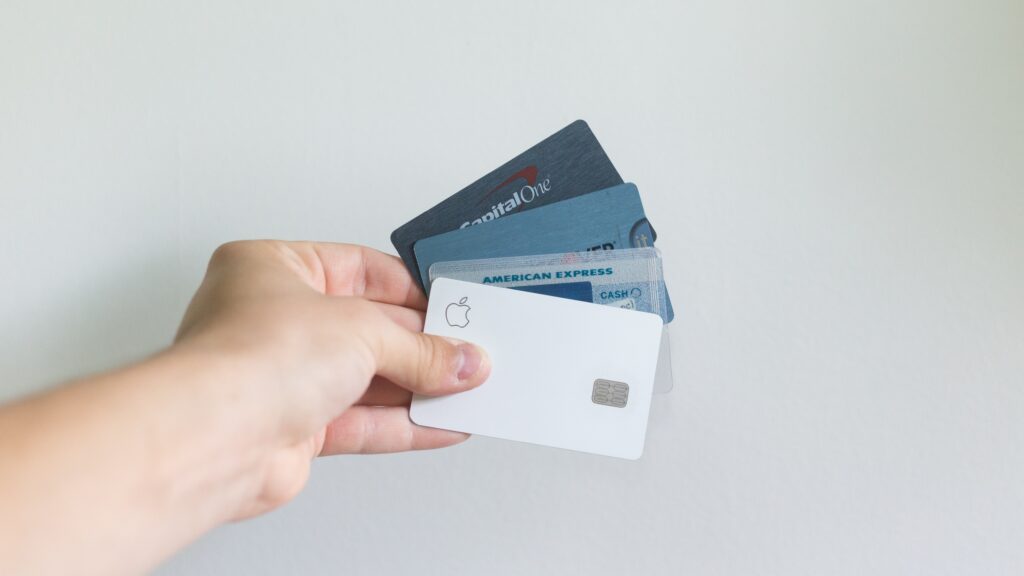
How to Apply for a Credit Card
Applying for a credit card is a fairly straightforward process but one that requires attention to detail. Most banks and financial institutions allow online applications. The process usually entails:
- Personal Information: You’ll be asked for your full name, address, date of birth, and Social Security number.
- Financial Information: Lenders want to know about your income, employment status, and possibly some of your monthly expenses.
- Approval Process: Once submitted, the bank checks your credit history and assesses your creditworthiness. This process can take anywhere from a few minutes to a few days.
How to Build Credit with a Credit Card
Building credit is crucial, as a good score can aid in securing loans, renting apartments, or even landing some jobs. Here are a few ways you can use a credit card to increase your score:
- Regular Usage: Using your card regularly, but sensibly, shows lenders you’re creditworthy.
- On-time Payments: Always pay your bills on time. Late payments can negatively affect your credit score.
- Low Credit Utilization: Aim to use less than 30% of your available credit limit. If your limit is $1,000, try to spend $300 or less in one cycle.
Benefits of Using Credit Cards vs a Debit Card (with real-life examples)
Credit cards offer numerous benefits that a normal debit card doesn’t, such as:
- Building Credit: Jake, a recent college graduate, used his credit card for small, manageable purchases and paid it off in full every month. This practice boosted his credit score, helping him secure a favorable rate on a car loan.
- Rewards & Cash Back: Maria uses her credit card for daily purchases and earns cash back, which she uses to offset her monthly bill.
- Purchase Protection: After purchasing an expensive camera, Alex discovered it was faulty. Thankfully, his credit card company offered purchase protection, refunding him the full amount.
Risks of Using Credit Cards
While they offer conveniences, credit cards come with potential pitfalls that you have to be aware of when using a credit card:
- Debt Accumulation: Spending without a plan can lead to unmanageable debt.
- Interest Charges: Carrying a balance means paying interest, which can quickly add up.
- Impact on Credit Score: Mismanagement, such as missing payments, can harm your credit score.
Tips for Avoiding Credit Card Debt
To keep your financial health intact:
- Pay in Full: Whenever possible, clear your entire credit card balance each month to avoid interest.
- Budget Wisely: Monitor your expenses and don’t spend beyond your means. It’s important to recognize that everyone’s financial situation is unique. However, a good practice is to match your credit card spending with the actual cash you have on hand. For instance, if you have $500 in your bank account, aim to keep your credit card spending under that amount to steer clear of accumulating debt.
- Seek Assistance: Life happens and sometimes things don’t work out the way they are suppose to. If debt becomes unmanageable, consider credit counseling services.
Credit Score Implications
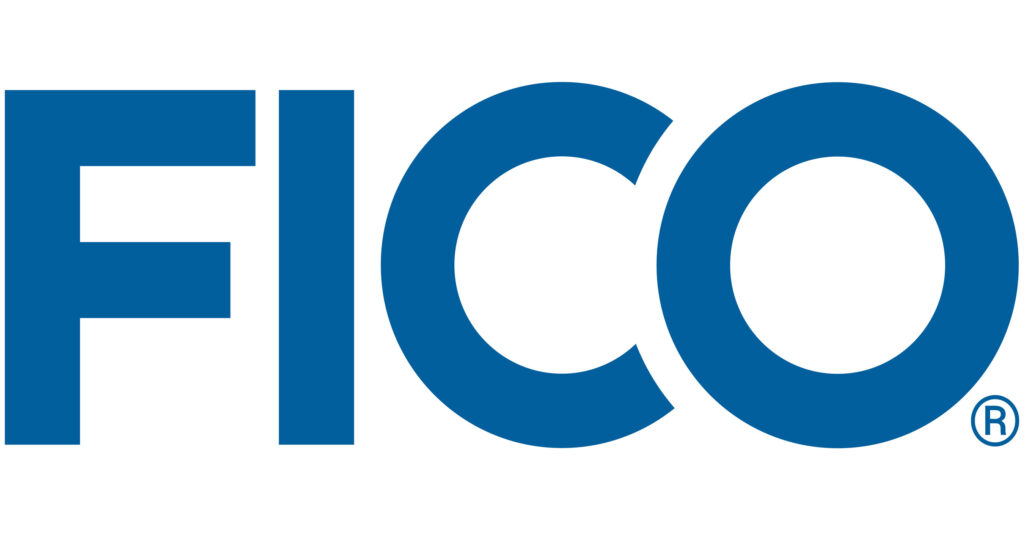
Understanding how credit cards influence your credit score simplifies many financial decisions. Here’s a breakdown of how using a credit card can both bolster and potentially harm your credit standing.
Just an FYI, you can usually check your credit score with your credit card providers mobile app or you can visit FICO or CreditKarma.
How Credit Card Usage Impacts Credit Scores:
Regular Payment History: The most significant factor in determining your credit score is your payment history. Every on-time payment improves your standing, showcasing you as a responsible borrower. Conversely, missed or late payments can have a bad effect, particularly if they become a recurring issue.
Credit Utilization Ratio: This refers to how much of your available credit you’re using. For instance, if you have a credit card limit of $1,000 and you’re carrying a balance of $300, your credit utilization ratio is 30%. It’s generally recommended to keep this ratio under 30% to maintain a healthy credit score.
Length of Credit History: The longer you’ve had a credit account open and in good standing, the better it is for your credit score. This is why it’s often suggested not to close old credit card accounts, even if you’re not using them regularly.
Actions that Boost Credit Scores:
Consistent On-Time Payments: Establishing a track record of punctuality in paying off your credit card balances is the best way to boost your credit score.
Keeping Low Balances: By maintaining a low credit utilization ratio, you signal to lenders that you manage credit responsibly.
Diversifying Credit Types: Having a mix of different types of credit (like credit cards, mortgages, and auto loans) can positively impact your score, as it shows lenders you can handle various forms of credit.
Behaviors that Can Harm Credit Scores:
Missing Payments: Even one missed payment can significantly drop your credit score, especially if it’s more than 30 days late.
Maxing Out Cards: Routinely maxing out your credit cards or having a high credit utilization ratio can indicate to lenders that you’re reliant on borrowed money.
Closing Old Accounts: This can reduce the overall length of your credit history and potentially lower your credit score.
Multiple Hard Inquiries: If you apply for several credit cards in a short span, each application results in a hard inquiry on your credit report. Multiple hard inquiries in a brief period can decrease your score and may signify to lenders that you’re desperate for credit.
Remember, while these are general guidelines, everyone’s financial situation is unique. It’s always essential to monitor your credit report regularly and understand the specific factors influencing your score.
Credit Card Features
Understanding the features of a credit card and how they work is important to utilizing them correctly. Let’s take a look into some of the most common features of credit cards.
Interest Rates (APR):
APR (Annual Percentage Rate): This is the rate at which you’ll be charged interest on any outstanding balances you carry from month to month. It’s expressed as a yearly rate, but credit card companies often charge interest monthly.
- Fixed APR: This rate remains consistent unless the credit card issuer decides to change it.
- Variable APR: Based on a benchmark rate (like the U.S. prime rate), it can fluctuate over time.
Tip: Always aim to pay off your credit card balance in full each month to avoid paying any interest. Because if you owe $300 and then are tacked $20 of interest. The next month you are charged interest on $320. This is how credit card debt becomes uncontrollable for people.
Credit Limits:
This is the maximum amount you can owe on your credit card at any given time. Exceeding this limit can result in fees or declined transactions. Your credit limit is determined by your creditworthiness, including your credit score and income. Over time, your credit score can increase. For example, it may start at $2,500. But as your credit worthiness increases, it could be moved up to $10,000.
Annual Fees:
Some credit cards charge an annual fee in exchange for additional benefits, rewards, or features. It’s essential to weigh the benefits against the cost to determine if a card with an annual fee makes sense for you. For those starting out, it’s best to start out with a $0 annual fee credit card.
Cash Advances:
This feature allows you to borrow cash using your credit card, often at a higher interest rate than regular purchases. Cash advances also typically start accruing interest immediately, without the standard grace period.
Warning: Due to their high costs, it’s best to avoid cash advances unless absolutely necessary.
Grace Periods:
This is the period during which you can pay off your credit card balance without incurring interest. It usually starts on the closing date of your billing cycle and lasts for at least 21 days. If you pay your balance in full by the end of the grace period, you won’t be charged any interest on your purchases for that cycle.
Note: Grace periods usually don’t apply to cash advances or balance transfers.
Understanding these features can help you choose the right card for your needs and avoid unexpected charges. It’s always a good practice to read the fine print of any credit card agreement to familiarize yourself with all the card’s features and potential fees.
International Usage and Travel
As a traveler, its important to have an understanding about how your credit card operates internationally. This can save you from unexpected expenses and inconveniences. Let’s explore the key aspects of using credit cards outside of your home country.
Understanding Foreign Transaction Fees:
Foreign Transaction Fees: These are fees charged by credit card issuers when you make a purchase in a foreign currency or with a foreign merchant. They’re usually a percentage (typically 1-3%) of the purchase amount.
- Why it’s charged: When you make a transaction in a foreign currency, your credit card company has to convert it to your home currency. This process incurs costs, which are then passed on to you as a fee.
- Avoiding the fee: Look for credit cards that advertise “No Foreign Transaction Fees” if you plan to travel or shop internationally frequently.
Tips for Using Credit Cards Abroad:
It’s important to go through a few steps prior to departing the country in order to have a smooth experience. The last thing you want to do is be on the phone with your bank or credit card provider because they blocked one of your transactions.
- Notify Your Bank: Before traveling, inform your bank or credit card issuer about your travel plans. This prevents them from marking your foreign transactions as suspicious, which could result in a temporary block on your card.
- Check Card Compatibility: Ensure that your card is widely accepted in your travel destination. For instance, while Visa and MasterCard are accepted almost everywhere, some countries may have limited acceptance for other card types.
- Backup Payment Method: Always carry a secondary payment method, like another credit card or local currency, in case your primary card doesn’t work or is lost.
Best Practices for Travelers:
Along with taking care of some steps prior to travel. It’s worth doing a few extra steps while traveling to ensure that your protected in case of something happening with your credit card:
- Document Everything: Make copies (either digital or paper) of your credit card’s front and back. This ensures you have all necessary details on hand in case the card gets lost or stolen.
- Opt for Local Currency: If given a choice between paying in local currency or your home currency, always choose the local option. This often results in a better exchange rate and avoids potential additional fees.
- Keep Receipts: Retain receipts of all transactions until you can verify them against your credit card statement.
- Consider a Travel Rewards Card: If you travel frequently, consider getting a credit card that offers travel rewards or other perks that cater specifically to travelers.
Traveling internationally is exhilarating, but it’s crucial to be prepared. By understanding your credit card’s features and being cautious, you can make your travels smoother.
Credit Card Security
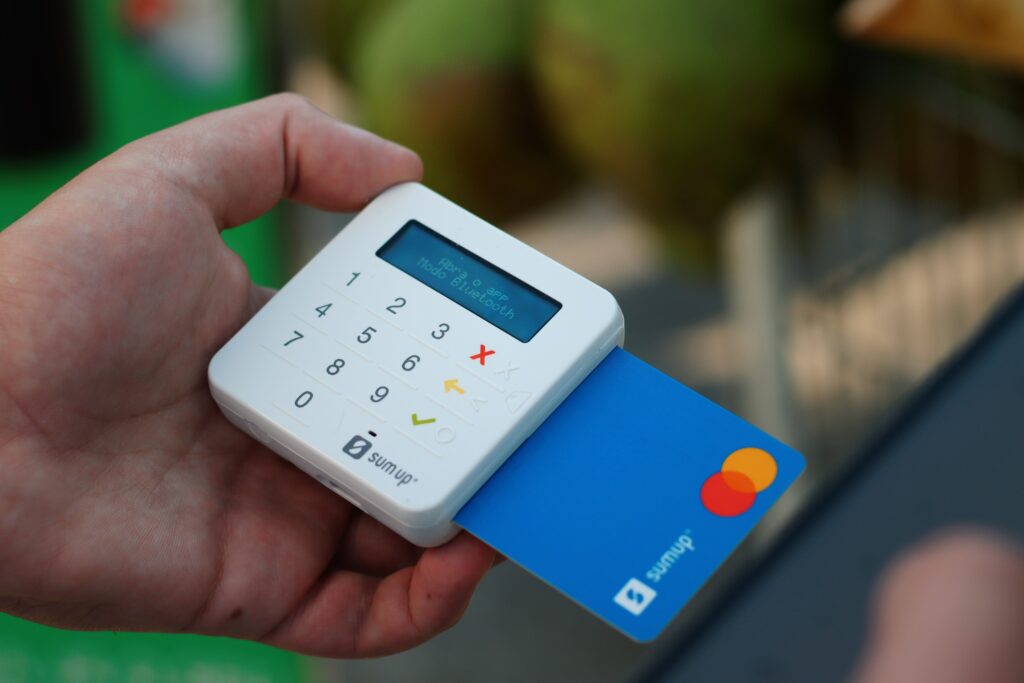
In today’s digital age, credit card security has become increasingly needed. Protecting your credit card information can save you from potential financial losses and identity theft. Let’s talk about some key measures and best practices for ensuring the safety of your credit card.
How to Protect Your Credit Card:
- Regularly Review Statements: Frequently check your credit card statements for any unauthorized transactions. If something looks amiss, contact your bank immediately.
- Be Discreet: When entering your PIN or checking your card details in public, shield your card from prying eyes.
- Don’t Share Your Details: Never disclose your credit card number over the phone unless you initiated the call and are certain of the recipient’s legitimacy.
What to Do if Your Card is Lost or Stolen:
- Report Immediately: As soon as you realize your card is missing, call your credit card issuer to report it. They can freeze the card, preventing unauthorized transactions.
- File a Police Report: If you believe your card was stolen, it’s a good idea to file a police report. This can aid in investigations and serve as evidence if needed.
- Update Auto-Payments: If you had recurring payments linked to the lost/stolen card, update them to avoid missed payments.
EMV Chips and Magnetic Stripes:
- EMV Chips: These are microprocessor chips embedded in cards that store and protect cardholder data. They offer better security than magnetic stripes, as they generate a unique transaction code that cannot be used again.
- Advantage: Harder to counterfeit than magnetic stripe cards.
- Magnetic Stripes: The traditional black stripe on the back of credit cards. It contains unchanging data, which makes these cards more vulnerable to skimming.
- Concern: These cards can be easily cloned if their data is intercepted.
Online Shopping Safety Tips:
- Secure Websites Only: Always ensure that the website starts with “https://” before entering any credit card details. The ‘s’ indicates a secure connection.
- Avoid Public Wi-Fi: Never make online purchases when connected to public Wi-Fi networks. These are often unsecured and can expose your data to malicious entities.
- Use Verified Payment Gateways: Opt for well-known and trusted payment gateways when checking out online.
- Regularly Update Software: Ensure your computer, smartphone, and any other device you use for online shopping have the latest software updates. This can protect against vulnerabilities.
Protecting your credit card information is crucial in today’s world. By following these guidelines and being vigilant, you can enjoy the convenience of your credit card while minimizing risks.
Navigating Offers and Promotions
Banks and financial institutions often dangle alluring offers and promotions to entice potential cardholders. While many of these offers are genuinely beneficial, some may have hidden caveats or may not be as great as they initially appear. As you navigate this landscape of incentives, it’s vital to have a discerning eye. Here, we’ll guide you on how to sift through these promotions to ensure you’re getting true value.
Identifying Beneficial Offers:
- Relevance to Your Lifestyle: The best offers aren’t necessarily the ones with the biggest numbers attached. They’re the ones that fit seamlessly into your life. For instance, a huge mileage bonus is of little value if you rarely travel.
- Long-Term Value: While initial sign-up bonuses can be enticing, consider the benefits the card offers in the long run. Does it offer cashback? Discounted rates at places you frequently shop?
- Clarity of Terms: A genuine offer is transparent. If you find yourself squinting at the fine print or feeling puzzled over the terms, it might be worth reconsidering.
The True Value of Introductory APR Rates and Bonuses:
- Introductory APR: Many cards offer a 0% introductory APR (Annual Percentage Rate), which means you won’t be charged interest on balances for a specified period. While this can be beneficial, especially for big purchases, remember:
- The rate is temporary. Know when it expires and what the regular APR will be.
- Late payments might void the introductory rate, launching you straight into the standard, and often higher, APR.
- Sign-up Bonuses: These are rewards given once you spend a certain amount within a specified timeframe. Ensure:
- The required spend aligns with your budget. Overspending to chase a bonus can lead to unwanted debt.
- The bonus has real-world utility for you. 50,000 points are great, but not if they don’t align with your spending habits.
Spotting Red Flags in Promotions:
- Vague Language: Phrases like “up to” or “as much as” can be indicators that the maximum advertised benefit isn’t guaranteed.
- Excessive Fees: Some cards might offer great rewards but come with high annual fees that could offset the benefits. Always weigh the cost against the reward.
- Limited Time to Redeem: If a bonus or offer has an exceptionally short redemption window, it might not be as valuable as it seems.
When you are thinking about trying any of these credit card offers and promotions, always equip yourself with knowledge. Understanding the terms, knowing what to look for, and being wary of potential pitfalls will ensure you’re making choices that truly benefit your financial health.
Wrapping Up Credit Cards
Navigating the world of credit cards can seem daunting, but with the right information, it becomes a tool that can serve you well in managing your finances. Let’s wrap up what we’ve learned and underscore the importance of ongoing credit card education.
The Importance of Continued Credit Card Education:
Knowledge is power, especially when it comes to financial tools like credit cards. As the financial landscape evolves, so do credit card features, offers, and security measures. By staying updated:
- You Remain in Control: Understanding your card’s terms, rewards, and potential pitfalls ensures that you’re using it to its maximum potential without unexpected setbacks.
- You Can Adapt to Changes: Banks and financial institutions frequently tweak their offerings. Being educated means you can swiftly adjust your strategy to make the most of new opportunities or avoid emerging risks.
- You Make Informed Choices: Whether you’re choosing a new card or deciding how to use your current one, knowledge empowers you to make choices that align with your financial goals.
Encouraging Responsible and Informed Use:
- Budget with Your Card: Use your card as an extension of your budget, not an addition to it. Spend within your means and fully understand the implications of not paying off the full balance.
- Seek Out Reliable Resources: Whether it’s news about credit card trends, reviews of the latest offerings, or tutorials on maximizing rewards, make it a habit to learn from reputable sources.
- Share Your Knowledge: As you learn more, share your insights with friends and family. Promoting responsible credit card use benefits not just individual cardholders, but the broader community as well.
In conclusion, while credit cards offer lots of benefits, they also come with responsibilities. By committing to ongoing education and responsible usage, you can utilize credit cards to boost your financial wellbeing while avoiding potential pitfalls. Stay informed, stay responsible, and let your credit card be a tool that works for you, not against you.
